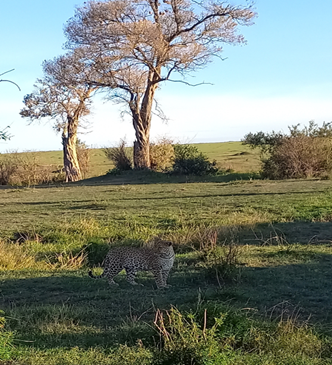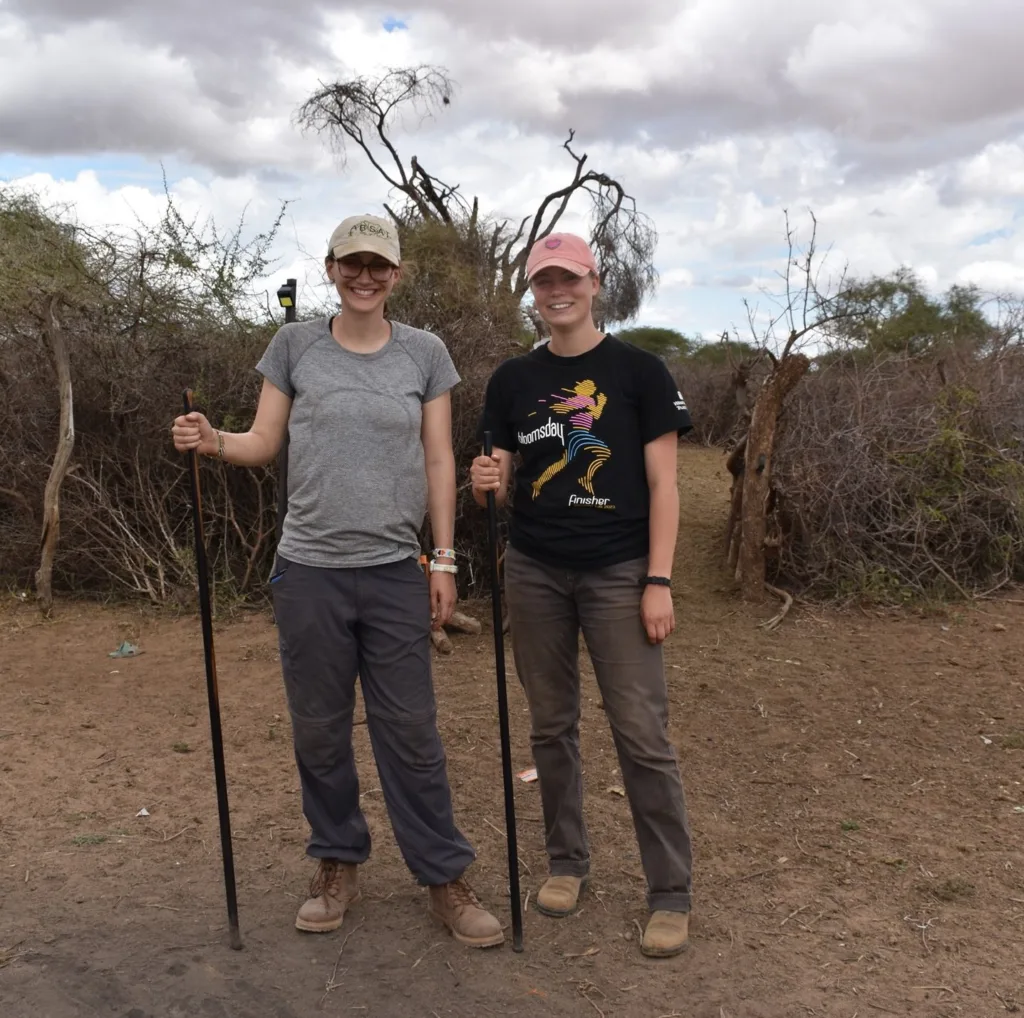Indigenous Methodologies
Respected elders from two nearby Indigenous villages, Huacaria and Queros, were invited to the Political Ecology class at Villa Carmen to discuss their communities’ previous experiences working with researchers, and how in the future, stronger research relationships could be formed between their communities and The School for Field Studies (SFS) in Peru.
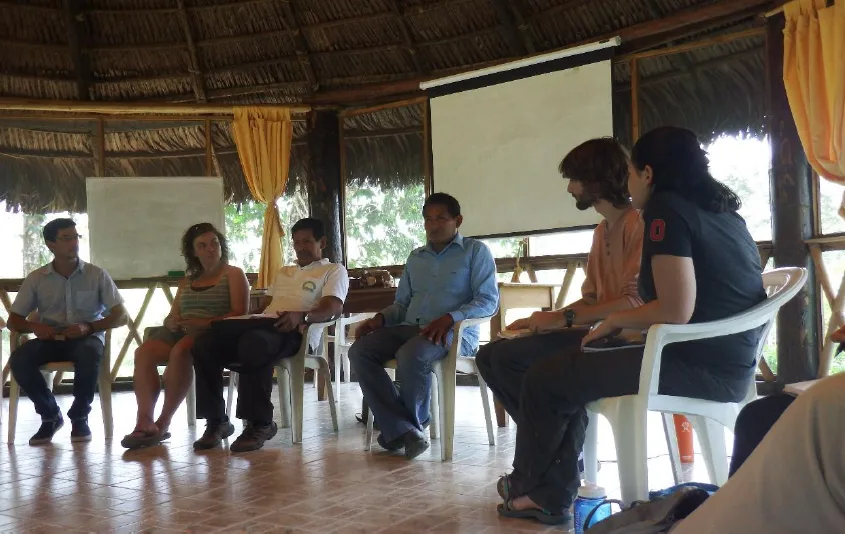
The teaching circle in the maloca. From left to right: Professor Adrian Tejedor, Program Coordinator Nicole Wischlinski, Sr. Julián Dariquebe, Don Alberto Manqueriapa, David DeHart (student), Erika Weiskopf (student). Photo: K. MacDonald.
Sr. Julián Dariquebe, a community teacher from Queros, and Don Alberto Manqueriapa, village leader and shaman from Huacaria, formed a teaching circle in the maloca to speak with the class. Together, they shared some of their previous encounters with outside researchers, highlighting the positive experiences while suggesting how others could have been improved. Students were encouraged to engage with Sr. Julián and Don Alberto through the preparation of questions, formed with the assistance of Professor Eric Gonzalez, the resident Spanish Professor, and to listen and learn from the Indigenous elders. The bilingual conversation that emerged, facilitated and translated by Tropical Ecology Professor Adrian Tejedor, proved to be a rich and engaging discussion of the history of outsider contact with the Huachipaeri and the Matsigenka peoples, as well as providing an insightful analysis of the potential for Indigenous methodologies to inspire future successful research relationships, grounded in mutual respect, reciprocity, and ethical responsibility.
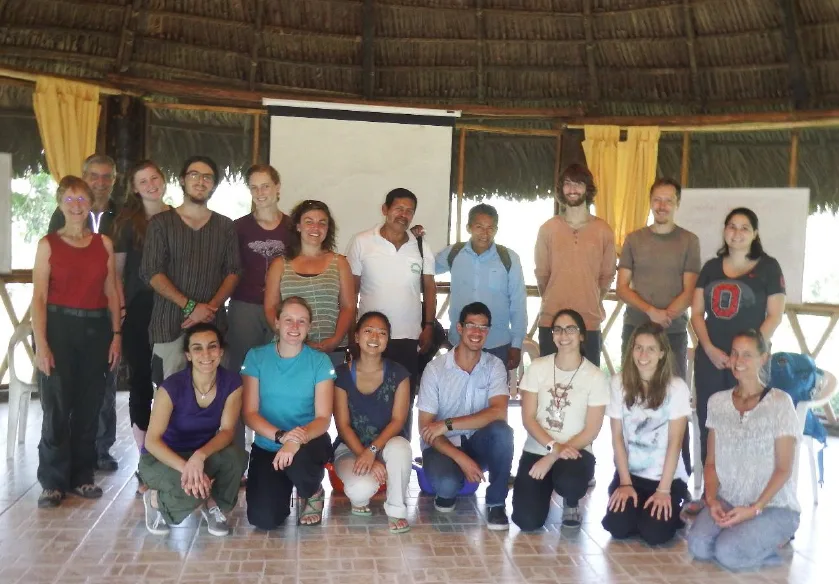
The Political Ecology class with Sr. Julián and Don Alberto, in the maloca. Photo: T. Bautista Romero.
Sr. Julián and Don Alberto were invited to lunch with us after the class, giving students a further opportunity to engage with our neighbours, and to learn more about their cultures and communities. These conversations will continue throughout the semester, as students and staff continue to interact with various community members locally in Pilcopata, as well as during our visit to the village of Queros, where we will be invited to learn more about Indigenous knowledge and biodiversity as a future component of the Political Ecology class.
Related Posts
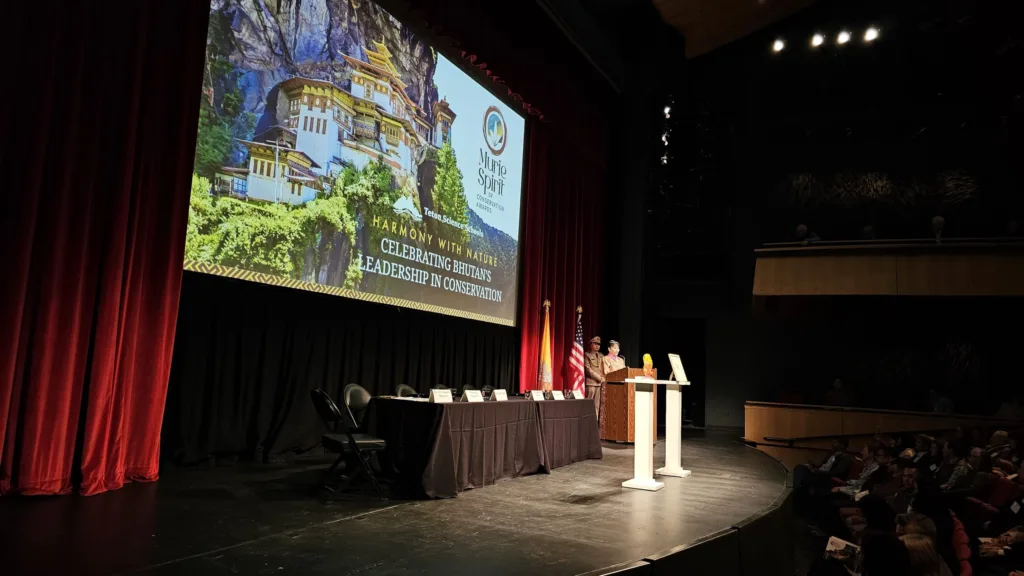
Bhutan Honored with the Murie Spirit of Conservation Award
